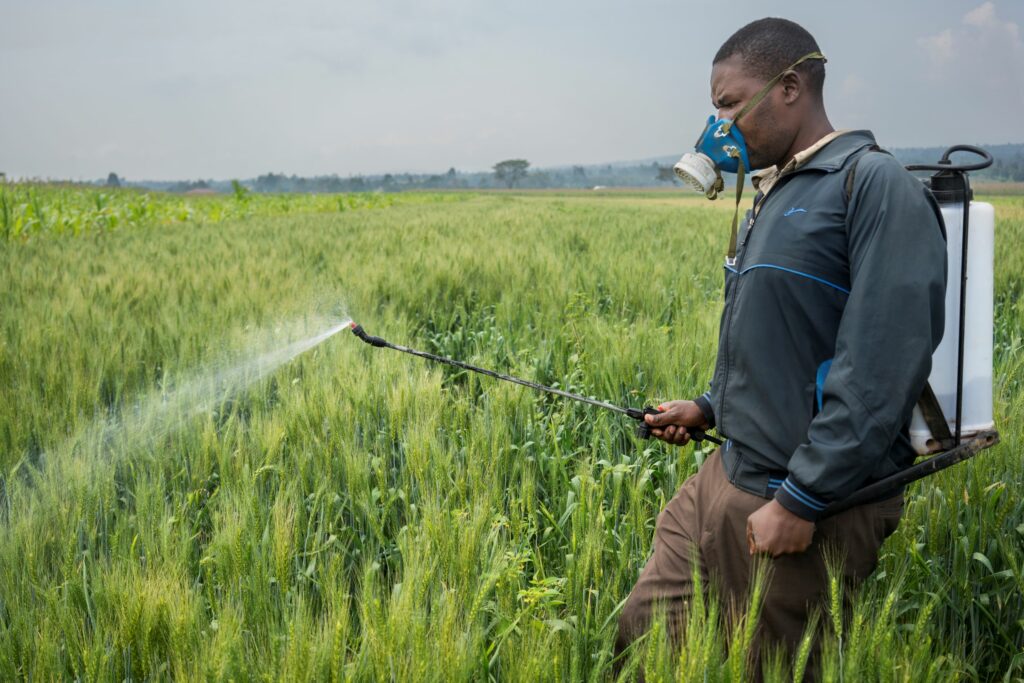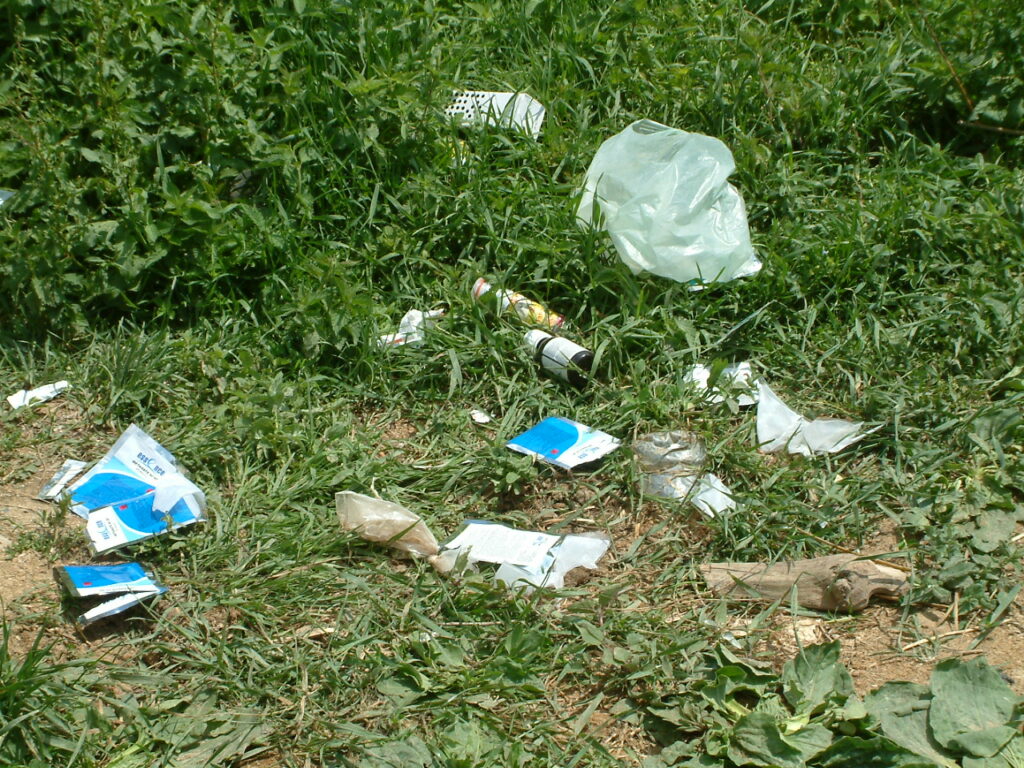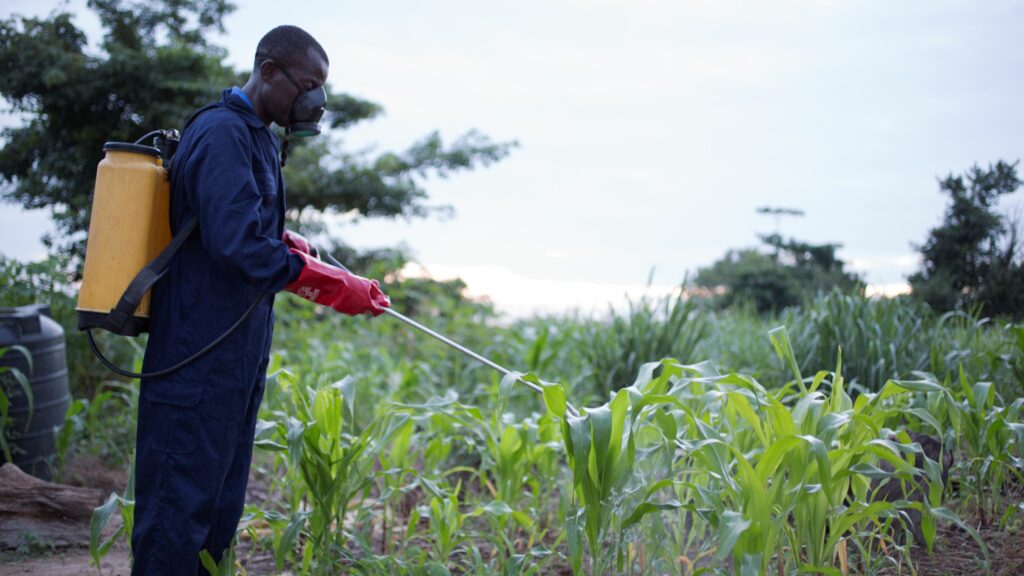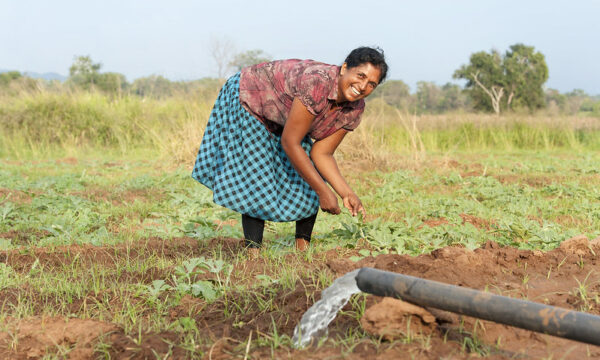
Pesticides can provide rapid means of controlling pests and prevent crop losses, but they can also pose a major risk to humans, animals and the environment. A recent research paper, led by CABI’s Dr Justice Tambo, examined whether plant clinics can reinforce the judicious use of pesticides among farmers in Rwanda and Zambia. It also outlined key recommendations for policymakers to consider.
The paper was based on a study that used survey data from 1474 farm households in Rwanda and Zambia, where plant clinics have been operating since 2011 and 2013, respectively, and considers plant clinic users and non-users. Its recommendations included:
Knowledge about safe disposal of pesticide waste needs to be greatly improved
Farmers, plant doctors, agricultural extension workers and agro-dealers’ generally lack the necessary knowledge on how to safely dispose of pesticide waste. A minimum requirement would be for farmers to triple-rinse and puncture or crush empty pesticide containers in order to prevent pesticide poisoning and environmental pollution.
One of the major negative outcomes of chemical pesticide use is their improper disposal. The survey found that around 50% of clinic and non-clinic users in Rwanda, and nearly 40% in Zambia, discarded or buried the pesticide waste in pit latrines. This risks contamination of soil and groundwater.
Burning of empty containers was also highlighted as a concern, as it can release toxic fumes and is a health risk to those living nearby. Dumping containers on the farm also poses a threat to children and livestock, given that most of the sample farmers cultivate near the homestead.

National authorities need to enforce pesticide regulations
Some farmers in the region are turning to unregistered or banned pesticides, possibly in a desperate bid to curb the devastating effects of unfamiliar pests, or due to limited knowledge and unavailability of appropriate options.
While plant doctors are trained not to recommend unregistered pesticides, the study found that a small percentage of clinic users applied banned, restricted or inappropriate pesticides.
This highlights the need for further training to improve plant doctors and farmers’ knowledge about pesticides and their associated risks. In addition, partnerships between plant doctors and agro-dealers must be enhanced so that farmers have access to appropriate pesticides.
If national authorities enforced pesticide regulations more thoroughly, this would ensure that unregistered or banned pesticides are not readily available to farmers.

Subsidies to help farmers acquire biopesticides and protective gear
Despite using moderately and highly hazardous, and even banned insecticides, some farmers wore no personal protective equipment (PPE) when applying chemicals to their crops. This was particularly prevalent in Rwanda, where 35% of farmers wore no PPE, while only 5% and 12% of sprayers respectively in Rwanda and Zambia wore full PPE (goggles, mask, gloves, coverall and rubber boots).
In Rwanda, using plant clinic services led to a significantly higher likelihood of wearing at least one item of PPE and a significantly greater chance of using multiple items of PPE (25% and 52% higher, respectively).
Roughly 22% of the pesticide users in both Rwanda and Zambia reported having experienced symptoms of acute pesticide poisoning during or after the application of pesticides, with symptoms such as such as eye and skin irritations, dizziness, headache, and sneezing.
Biopesticides are safer, low-toxicity products, and government subsidies to help farmers to acquire them would be an important step. Similarly, PPE is unavailable and unaffordable for many farmers, but the higher PPE usage recorded in Zambia during this survey could be linked the success of subsidised PPE distribution by the government during the FAW outbreak in 2017.
Additional information
To read the policy paper in full, visit ‘Can plant clinics enhance judicious use of pesticides? Evidence from Rwanda and Zambia’
To read a blog covering the research paper, visit ‘Plantwise plant clinics improve proper use of pesticides and highlight need to wear Personal Protective Equipment’
For more information about the connected project to this working paper, and the partners involved, visit Plantwise.
Acknowledgements:
This research was funded by the CABI-led Plantwise programme, which is financially supported by the Foreign, Commonwealth & Development Office (FCDO), United Kingdom; the Directorate- General for International Cooperation (DGIS), Netherlands; the Swiss Agency for Development and Cooperation (SDC); the European Commission (DG DEVCO); the Australian Centre for International Agricultural Research (ACIAR); the Ministry of Agriculture of the People’s Republic of China; Irish Aid; and the International Fund for Agricultural Development (IFAD).
Related News & Blogs
How does crop rotation help keep pest populations in control?
Crop rotation is a simple, effective way to manage pests, improve soil health, and boost yields. Suitable for all growers, crop rotation supports sustainable agriculture and reduces the need for chemical inputs. By targeting pest lifecycles and reducin…
6 June 2025




